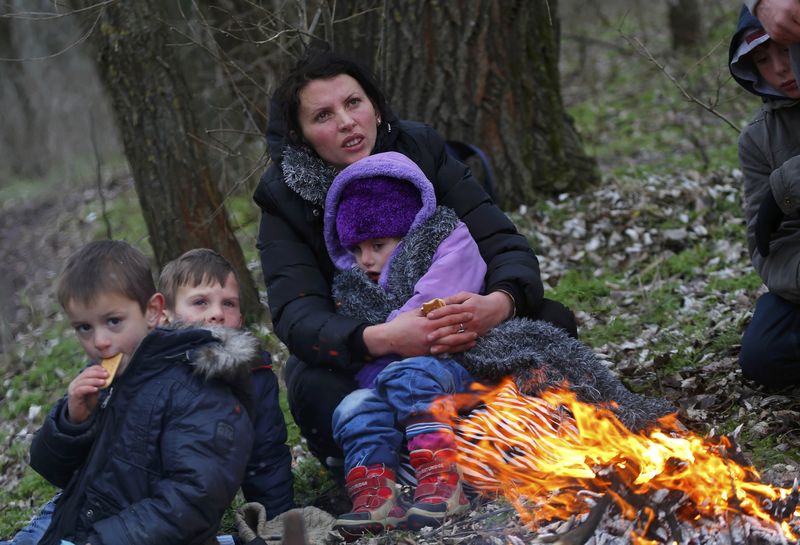By Fatos Bytyci and Marton Dunai
VUSHTRRI, Kosovo/ASOTTHALOM, Hungary (Reuters) - Bajram Abazi has lost half his workforce in little over a month, claimed by a sudden surge in emigration from Kosovo.
"I've already lost 11 and now another worker has told me he's leaving tonight," said Abazi, owner of the Be Commerce biscuit factory in the northern Kosovo town of Vushtrri. "It's becoming the culture – everyone else is going, so we should too."
More than 15 years after NATO bombs wrested Kosovo from Serbian strongman Slobodan Milosevic, the young Balkan country is witnessing a dramatic surge in the number of its citizens smuggling themselves across Serbia's border into Hungary to reach the European Union.
The vast majority are fleeing poverty, unemployment or low-paid labour for the more affluent countries of Western Europe, a new wave following those who ran from repression and war in the 1990s. The average salary in the private sector is 230 euros (171 pounds) per month. More than a third of the workforce is unemployed.
Since September, more than 30,000 have been caught in Hungary, compared with 6,000 for the whole of 2013. Almost all apply for asylum, and use the time it takes to process their applications to give overstretched immigration authorities the slip and push westwards to the likes of Germany and Switzerland through the EU's borderless Schengen zone.
Vushtrri faces being devastated. Its population has shrunk 7 percent in the space of a few months. More than 400 children have been pulled from the town's schools, 5,000 Kosovo-wide.
Aided by a relaxation of entry rules to former master Serbia, families travel by bus for 15 euros per person to the Serbian capital, Belgrade, then again by bus to the northern town of Subotica, from where they take a taxi to the border and walk across, through a water-filled ditch and then kilometres of forest.
"This is the gateway to Europe," said Zoltan Salinger, a 23-year-old Hungarian border ranger. "I spoke to old hands on the border; they told me, in 1998, a total of 34 migrants were caught. Now we get 500-600 every day."
"Those two planks you see leading across that ditch," he said to a reporter, "that's the Schengen border."
"GATES MUST BE SHUT"
At the border, men removed their shoes and trousers to wade through three feet (a metre) of water in the ditch, carrying children. The walk to the nearest town is 10 km (six miles), through forest and snow that began falling on Friday afternoon.
A top ally to Hungarian Prime Minister Viktor Orban said on Friday that Hungary's "gates must be shut" to economic immigrants.
Kosovo's president went to Vushtrri the same day to urge residents to stay.
"You should not leave; you have to stay with us here and find solutions," Atifete Jahjaga told a crowd of people.
One man yelled back, "I'll go tonight to Hungary." Another said: "Madam president! Find me a job and I won't leave Kosovo."
The exodus is fuelled by widespread poverty, high unemployment - particularly among young people - and stubborn corruption, seven years after Kosovo seceded from Serbia. It has coincided with a period of political turbulence and unrest since an election in June.
Authorities, however, are at a loss to explain the sudden jump in numbers since September. Migrants spoken to by Reuters reporters suggest smugglers have found safer routes across the border, and word of mouth has triggered an exodus.
"One person goes, everyone thinks there must be something there, and they have to go too," Vushtrri mayor Bajram Mulaku told Reuters. He said 5,000 of the municipality's 70,000 people had left in a matter of months, with the flow reaching its peak in the past 20 days.
Gazmend Xhema, 28, said he, his wife and three-year-old daughter had tickets for Tuesday night on one of at least 10 packed buses leaving every night for Belgrade.

"I've decided to go now because they say it's much easier," he said. Once in Hungary, he said, "I'll tell them: 'Kill me, just don't turn me back to Kosovo, because there's nothing here.'"